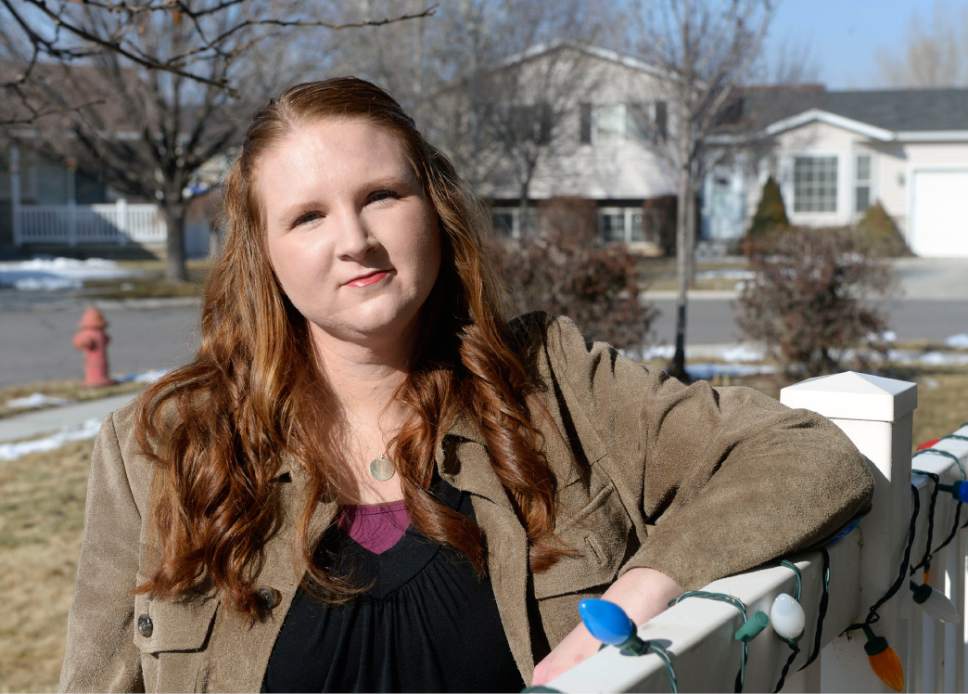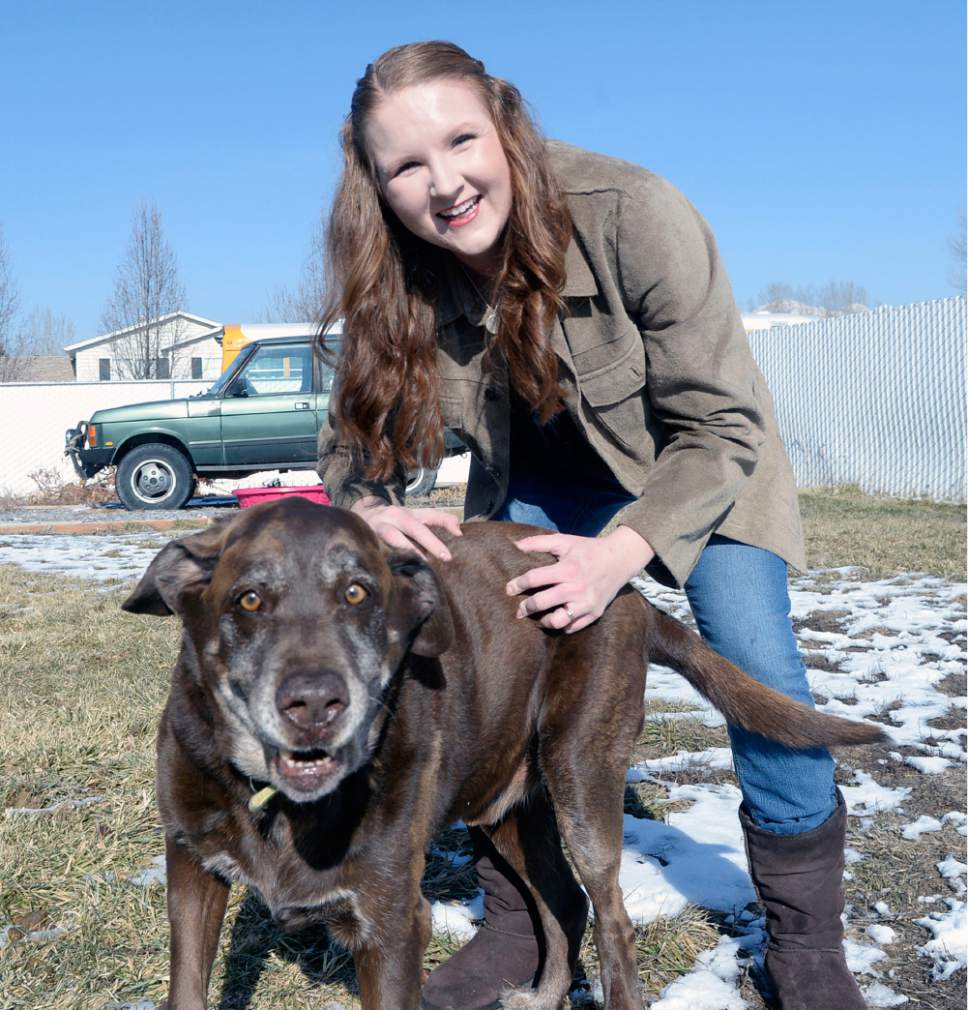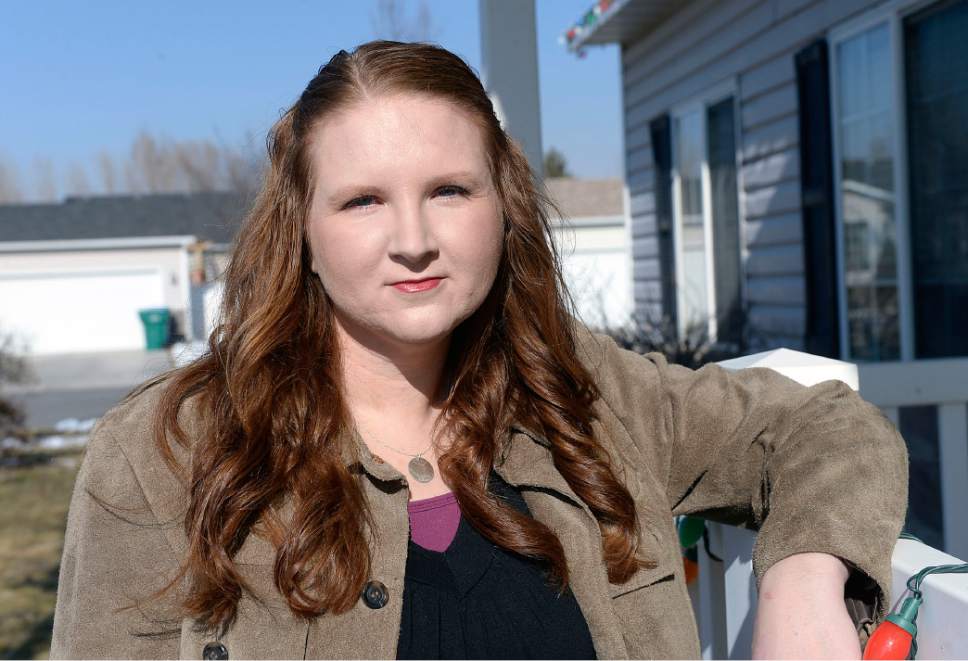This is an archived article that was published on sltrib.com in 2017, and information in the article may be outdated. It is provided only for personal research purposes and may not be reprinted.
When Hailey Allen heard last week that Tiffany Turley was named Brigham Young University's new Title IX coordinator, she began to sob.
Her anxiety skyrocketed, she said, and the post-traumatic stress disorder she said she suffers as a result of being raped as a student at the university was triggered.
"I felt they had lied to us," Allen said. "Given us hope that they would change their ways and then didn't."
Allen and about 30 other alumni and sexual assault victims are concerned that Turley and Lisa Leavitt, selected to serve as a full-time advocate for sexual assault victims, do not have the experience and outlook the jobs require.
They have written to university President Kevin Worthen to express "grave concern," asking that the women undergo Title IX and other specific training, work with outside experts and face evaluations by an internal advisory council.
On Tuesday, BYU defended its decisions and announced the hiring of a deputy Title IX coordinator, Marcus Williams, who previously worked for the Naval Criminal Investigative Service. He starts Jan. 23.
Williams "is well-trained in responding to sexual assault issues," said Carri Jenkins, university spokeswoman. "The Department of Defense has made multiple changes to adopt a trauma-informed and victim-centered approach to sexual assault investigations."
Under Title IX, a federal law that bars sex discrimination on campus, universities must swiftly respond to and resolve complaints of sexual violence and provide services to potential student victims.
Before being named the new Title IX coordinator, Turley was manager of the university's Women's Services and Resources. Leavitt worked as a psychologist in the university's student counseling center.
The alumni and sexual assault victims criticize the decision to fill both the coordinator and victim advocate jobs with internal candidates, when the school's "policies and practices failed to support victims of sexual crimes," their letter states.
"Hiring from within is not only a missed opportunity to bring in new ideas and attitudes that could affect real change at BYU, it also runs the risk that said persons will be seen by survivors as being loyal to the university's interests rather than to the victims they serve," the letter said.
The new hires are part of BYU's recent overhaul of how it handles reports of sexual assault.
The university drew scrutiny in April, when then-student Madi Barney called for BYU to grant amnesty to students who report sexual assault and stop investigating them for Honor Code violations.
In October, BYU announced it planned to follow 23 recommendations put forth by an internal advisory council, which last year studied the school's sexual assault response.
Granting amnesty to victims who disclose Honor Code violations at or near the time of an alleged assault was one of the recommendations. The university has not yet added it to its policy, but says it has adopted that practice.
Other changes recommended in October include creating a new physical space to separate the Title IX and Honor Code offices, which BYU already has done. And Turley will report to a vice president — previous Title IX coordinators reported to the dean of students, who also oversees the Honor Code Office.
The group members are "thankful," they wrote, that the university is moving forward with the recommendations.
But they are worried that both Leavitt and Turley have never served in similar positions before.
"The sexual assault victims at BYU need strong and experienced personnel to build new policies and procedures separate from those conducted in the past," the letter states.
The group wants Leavitt to receive at least 100 hours of advocate training by Sept. 1, as well as volunteer at a local advocate agency for six months. They want Turley to attend several seminars related to Title IX and trauma-informed sexual assault investigation as well as shadow a current Title IX director, such as the one at Utah Valley University.
Both should be evaluated by the council and be replaced or "take immediate steps to make sure qualifications are met" if their responsibilities are not fulfilled.
Jenkins said in an email Tuesday that BYU appreciates the input, adding that officials believe the two women "are well-prepared for their roles through training and experience."
Ongoing training is "vital and required" for individuals in these two positions, she said, adding that both are participating in professional training over the next two weeks.
"We also believe it is important that BYU collaborates closely with those in our own community who assist victims and survivors of sexual assault," Jenkins said.
BYU is one of three Utah colleges — including University of Utah and Westminster College — currently being investigated for its handling of sexual assault complaints.
Turley, who told The Salt Lake Tribune last week that her goal is to make sure students feel safe reporting sexual assaults to the university, replaces Sarah Westerberg. Westerberg will continue to serve as the associate dean of students.
Allen and Madeline MacDonald, who also signed the letter, were among many current and former BYU students interviewed by The Tribune who said the Honor Code Office became involved when they reported sexual abuses to Title IX. Students said school officials probed their conduct, reviewing curfew violations, what they were wearing, and even their communications with others about the Honor Code process — although the students had said they had not consented to sex.
Several students said Westerberg defended involving the Honor Code Office when they went to Title IX for services or to report an assault.
And at the April conference where Barney spoke out, Westerberg acknowledged that while it might have a "chilling" effect on reporting, the Title IX office would "not apologize" for referring students to the Honor Code Office for investigation and possible discipline.
The Honor Code at BYU, owned by The Church of Jesus Christ of Latter-day Saints, forbids alcohol and coffee, restricts contact between male and female students, imposes a strict dress code and bans expressions of romantic affection between people of the same gender.
"The university has a responsibility to make an unequivocal statement that sexual assault is not only illegal but pure evil," the letter states. "The university also has the responsibility to victims of sexual assault in comforting, aiding and protecting them."
Allen said the group attempted to speak with Worthen before sending the letter, but were told the BYU president was out of town until next week.
"BYU is not a safe place for me and many others," Allen said. "I had hoped they would change to help me and others but this latest decision does not demonstrate change. It does not show me that they are doing everything they can to rectify the life-alerting mistakes they have made."
Twitter: @alexdstuckey







